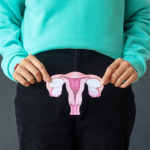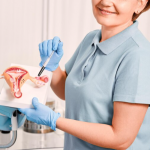Frequently Asked Questions about Cervical Cancer Vaccine
Affecting women worldwide, cervical cancer ranks among the leading causes of female mortality. To combat this, groundbreaking preventive measures like Human Papillomavirus (HPV) vaccines have emerged. Let’s delve into the most common inquiries about Cervical Cancer Vaccine – HPV vaccines, exploring their science, benefits, and transformative impact on cervical cancer.
Q1. What is the HPV vaccine?
Ans. The HPV vaccine is a crucial intervention for cervical cancer control, included in national immunization programs in over 60 countries. It targets girls aged 9-13 as per WHO recommendations, offering protection against various HPV strains.
Q2. Why is the HPV vaccine important?
Ans. Cervical cancer is prevalent in India, with a 2.5% lifetime risk for women—double the global rate. HPV vaccines specifically target high-risk strains, notably HPV-16 and HPV-18, responsible for the majority of cases.
Q3. What does the HPV vaccine do?
Ans. Designed to stimulate the immune system against HPV strains, the vaccine prevents infection and subsequent cancer development. It introduces non-infectious virus components, teaching the body to recognize and combat future infections.
Q4. What are the types of cervical cancer vaccines?
Ans. Two main types exist: bivalent and quadrivalent. Both target high-risk HPV strains, with the latter additionally protecting against HPV-6 and HPV-11, causing most genital warts.
Q5. Who should get vaccinated?
Ans. Adolescents and young adults, ideally before sexual activity onset, are prime candidates. Catch-up vaccination is recommended for those who missed the primary window, up to age 26.
Q6. What is the cost of the HPV vaccine?
Ans. The cervical cancer vaccine price in India ranges from 2000 to 4000 INR, ensuring affordability.
Q7. What are the potential side effects?
Ans. Common side effects include pain, swelling at the injection site, mild fever, and headache, typically resolving within days. Serious side effects are rare.
Q8. Is the vaccine effective against all HPV types?
Ans. While targeting high-risk strains, it may offer cross-protection against other types.
Q9. Are booster shots needed?
Ans. As per current guidelines, booster shots aren’t routinely recommended, as the initial series provides long-lasting protection.
Q10. Can it be administered during pregnancy?
Ans. Generally not, but completion post-pregnancy is advised if initiated.
Q11. How long does protection last?
Ans. Studies suggest at least 10 years of immunity.
Q12. Can immunocompromised individuals receive it?
Ans. Yes, with healthcare provider consultation.
Q13. Can males get vaccinated?
Ans. Yes, as it prevents HPV-related cancers in both sexes.
Q14. Is there an age limit?
Ans. Catch-up vaccination is recommended up to 26 years for females and 21 for males.
Q15. Can it affect fertility?
Ans. Extensive research negates infertility concerns.
Q16. What if doses are missed?
Ans. Consult a healthcare provider for catch-up vaccination advice.
Q17. Can it benefit those with previous HPV infections?
Ans. Yes, by offering protection against other HPV types.
Q18. Are there contraindications?
Ans. Individuals with severe allergic reactions should avoid further doses.
Q19. Does it protect against other STIs?
Ans. No, it targets HPV specifically.
Conclusion HPV vaccination is crucial for cervical cancer prevention, with public awareness and early detection playing vital roles. To learn more, consult Dr. Madhu Goel, best Gynecologist in New Delhi today.




